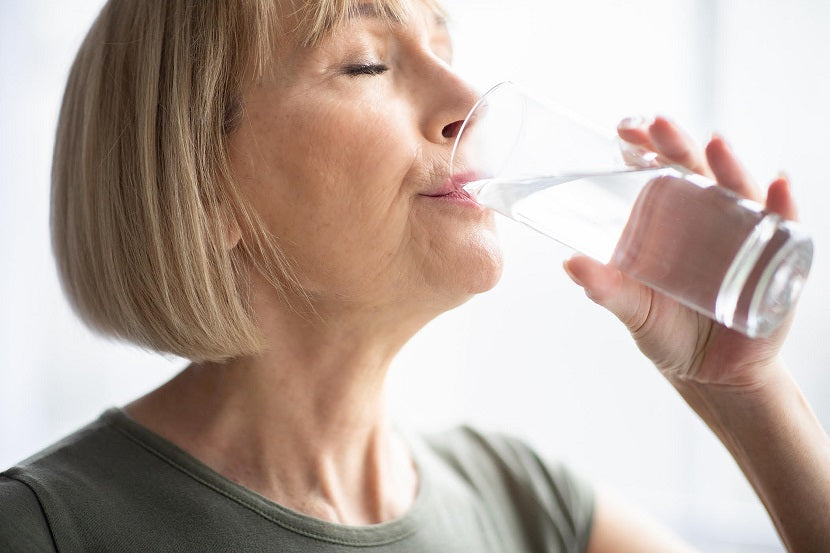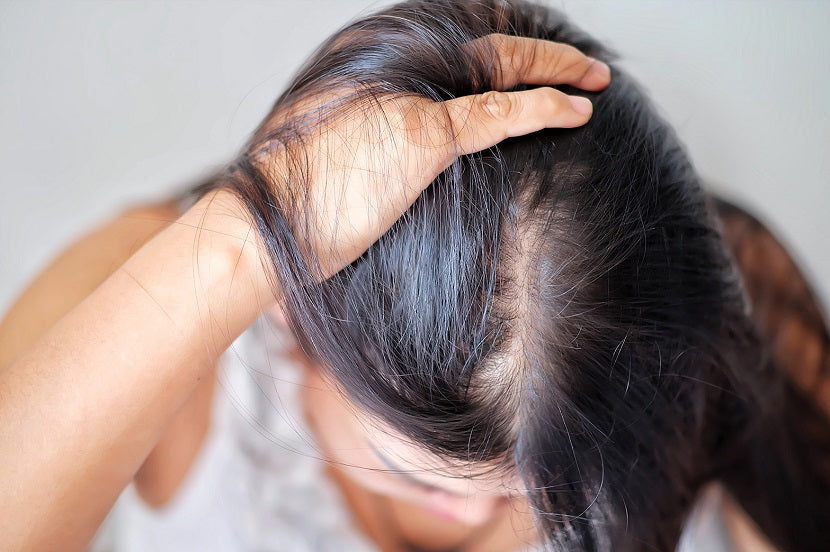WHY DOES HYDRATION MATTER?
Adequate water intake and hydration is vital for maintaining optimal health and ensuring the proper functioning of all our bodily systems. Water is essential for blood circulation as it helps maintain blood volume, allowing for efficient transport of oxygen and nutrients to cells while also facilitating the removal of waste products. Proper hydration supports detoxification by assisting the function of the kidneys, allowing for the effective elimination of toxins and metabolic waste through urine.
Additionally, water plays a crucial role in brain function, as even mild dehydration can impair cognitive abilities (hello brain fog!), memory, concentration, and mood. Water also helps regulate body temperature through sweating and respiration. It lubricates joints, reduces the risk of friction and injury, and is even necessary for digestion. Without which we would become constipated!
The skin is another key area of health heavily reliant on adequate water intake. Dehydration causes the skin to become dry, dull, and less elastic, making fine lines and wrinkles more pronounced while also increasing sensitivity and irritation. Additionally, dehydrated skin's impaired barrier function can lead to slower healing and a heightened vulnerability to environmental damage and infections.
SIGNS OF DEHYDRATION
- Brain fog
- Dizziness or feeling faint
- Cramps
- Dry skin, eyes, mouth
- Fatigue
- Headaches
- Dull dry skin
- Irritability
- Concentrated urine
- Poor memory
- Increased risk of urinary tract infection
HOW MUCH WATER DO WE NEED?
The exact amount of water you need will depend on your personal diet, lifestyle, exercise regimen, caffeine intake, and the humidity where you live. A general rule of thumb for daily water intake is often cited as 30-35 milliliters per kilogram of body weight. This means:
- 30-35 ml/kg: This range suggests that for every kilogram of body weight, you should aim to drink approximately 30 to 35 milliliters of water per day.

*Aim for urine that looks in colour like the first two vials.
It’s also recommended to:
- For every caffeinated beverage consumed, have additional water as caffeine is a diuretic.
- Increase water intake when you’re exercising particularly in hot weather.
- Have more water if you’re in peri/menopause and suffering with significant hot flushes and sweating.
- Keep in mind that thirst declines with age so you may need water even though your body isn’t telling you.
HOW MUCH IS TOO MUCH?
Drinking too much water can lead to a condition called water intoxication or hyponatremia, where the balance of electrolytes in the body is disrupted. Electrolytes such as sodium, potassium, and chloride are crucial for various physiological functions, including nerve and muscle function. When excessive water intake dilutes the electrolyte concentration in the blood, it can impair the normal function of cells and tissues.
Additionally, diluted enzymes can affect digestion and metabolic processes, as enzymes require specific pH to function effectively. Too much water can also cause oedema and impair kidney function.
HOW TO EASILY INCLUDE MORE WATER INTO YOUR DAY
- Get creative. Have herbal teas and add cucumber, watermelon, citrus, or flavoured stevia to your water. These are tasty ways to drink water and have the added therapeutic benefit of nutrition while you hydrate.
- Eat soups, broths, and other water-rich foods: Think cucumber, watermelon, oranges, and celery in your diet.
-
Add your MSP, Happy Collagen and/or Happy Digestion to your water. This is an ideal strategy to remember your supplements and also make water more pleasant to drink.
- Hydrate before your morning coffee. This is a great way to improve cognitive function and boost energy in your morning workout.
- Drink even if you’re not thirsty. Establish a routine for drinking water throughout the day so that a busy schedule doesn’t impede your water intake.
- Carry a bottle with you. Buy your own water bottle to remind yourself to hydrate.
WHAT KIND OF WATER SHOULD I BE DRINKING?
Filtered water is always preferred over non-filtered water. Removing contaminants like chlorine and heavy metals makes your drinking water safe. There are various filters out there but looking for one that removes impurities while either retaining essential minerals or adding them back in is important for taste and for good health.
How much water are you drinking everyday?









Leave a comment
This site is protected by hCaptcha and the hCaptcha Privacy Policy and Terms of Service apply.